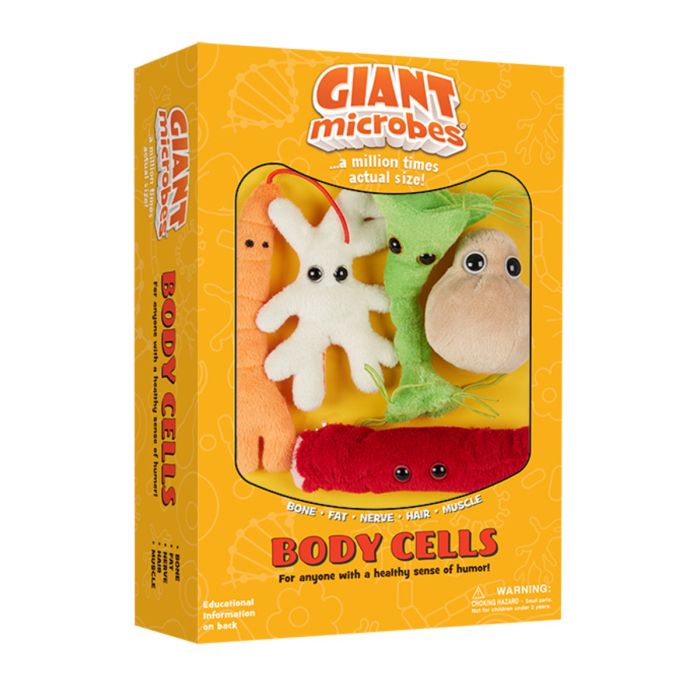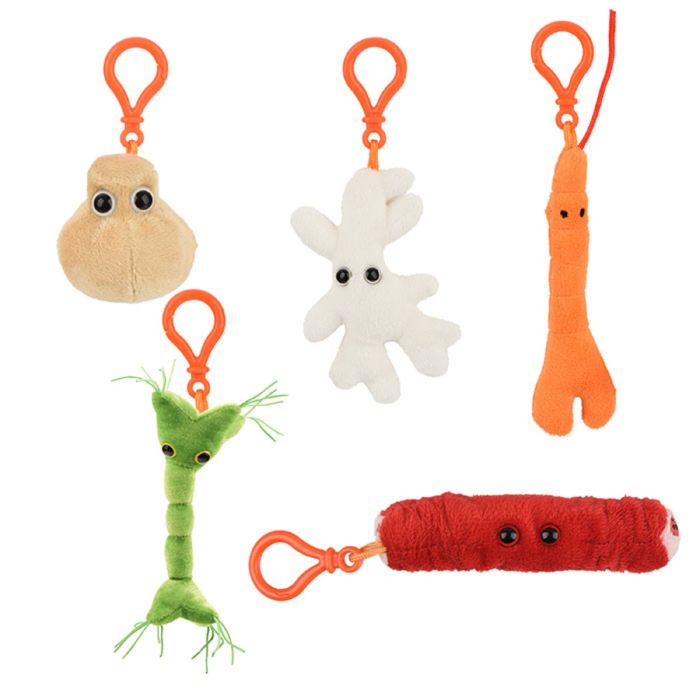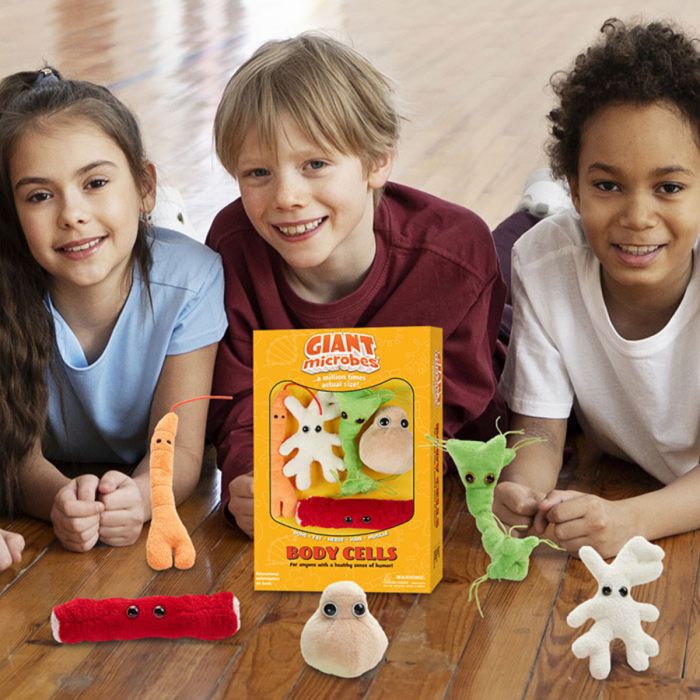Body Cells
Body Cells themed gift box includes these mini microbes: Bone Cell, Fat Cell, Nerve Cell, Hair, and Muscle Cell.
Clip them onto your backpack, keys or anywhere! Includes key chain clips.
Product Details
Additional Information
| Sizes | Giantmicrobes are based on actual microbes, cells, organisms and other critters, only 1,000,000 times actual size! Gigantic (GG) 16-24" XL (XL) 10-15" Original (PD) 5-8" Keychain (KC) 2-4" with clip |
|---|---|
| Materials | Plush from all new materials. Stuffed with polyester fiber fill. Surface washable: sponge with water & soap, air dry. |
| Packaging | Each plush microbe includes a printed card with fun, educational and fascinating facts about the actual microbe or cell. |
| Safety | Every product meets or exceeds U.S. and European standards for safety. For ages 3 and up. |
All about Body Cells
Bone Cell
Your bones are made primarily of an intricate edifice of mineralized tissue laid down by bone cells like a coral reef.
Mature osteocytes occupy little spaces called lacunae and reach out desperately to nearby cells with thin extensions into little channels (or canaliculi) in the bone. They form a living network inside the bone that can exchange nutrients and waste. They can also communicate about which parts of the bone are being stressed and need to be strengthened – as well as determine which parts should be left to decay.
Fat Cell
The average human body has 40 billion corpulent little cells whose primary job is to make you fat!
These portly little adipocytes (Greek for “fat cell”) are just trying to be helpful, of course. The fat they store provides warmth and protection for your body, and even transports essential vitamins such as A, D, E, and K throughout your body. Most importantly, the energy in your fat can keep you alive for months, if the need ever arises.
Nerve Cell
There are a lot of different kinds of nerve cells. Motor neurons shock our muscles into action; sensory neurons in our eyes and ears are stimulated by light and sound, on our nose and tongue by chemicals for smell and taste, and on our skin by touch; and an untold number of other interneurons transmit impulses within the central nervous system and the brain.
Hair
Hair provides natural warmth and protection from injury, both from pointy objects and from solar UV rays. Nearly all mammals are entirely covered by thick, terminal hair with some exceptions (such as elephants, rhinoceri, hippopotami, pigs, whales, walruses, us...)
Hair grows in a variety of textures and colors. But just two pigments (eumelanin and phenomelanin) produce a range of shades from blond, brown, and black, to red, grey, and white.
Muscle Cell
There are three kinds of muscle cells: cardiac (the involuntary thumping muscles found in the heart), smooth (the involuntary muscles such as those that line blood vessels, the gastro-intestinal tract, and the lungs) and skeletal (the familiar muscles attached by tendons to bones).
Muscles are typically red because they are saturated with the energy-carrying blood required to do their work. However, “white” fast-twitch muscle can produce a large force for very short periods.







